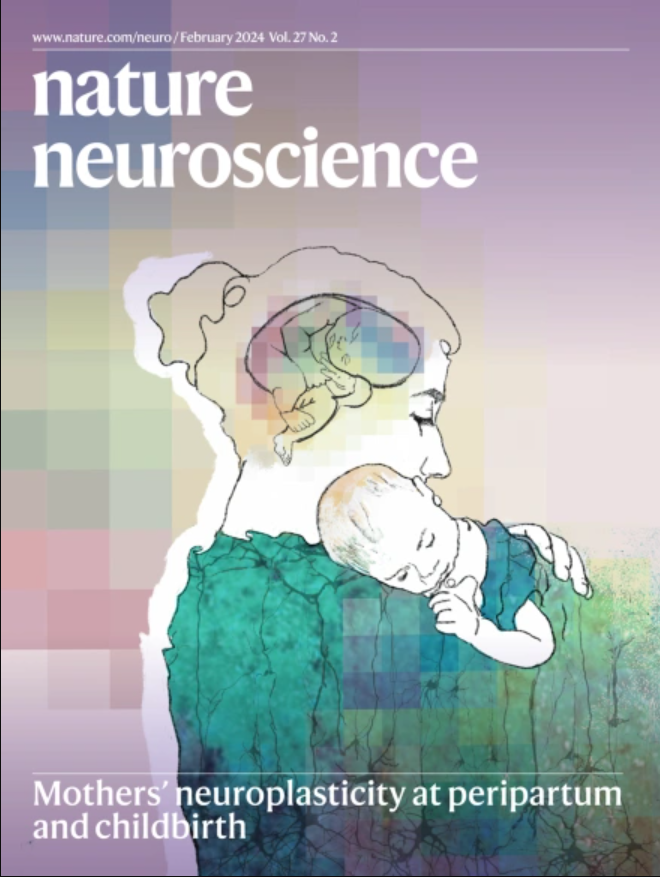Explaining dopamine through prediction errors and beyond
IF 21.2
1区 医学
Q1 NEUROSCIENCES
引用次数: 0
Abstract
The most influential account of phasic dopamine holds that it reports reward prediction errors (RPEs). The RPE-based interpretation of dopamine signaling is, in its original form, probably too simple and fails to explain all the properties of phasic dopamine observed in behaving animals. This Perspective helps to resolve some of the conflicting interpretations of dopamine that currently exist in the literature. We focus on the following three empirical challenges to the RPE theory of dopamine: why does dopamine (1) ramp up as animals approach rewards, (2) respond to sensory and motor features and (3) influence action selection? We argue that the prediction error concept, once it has been suitably modified and generalized based on an analysis of each computational problem, answers each challenge. Nonetheless, there are a number of additional empirical findings that appear to demand fundamentally different theoretical explanations beyond encoding RPE. Therefore, looking forward, we discuss the prospects for a unifying theory that respects the diversity of dopamine signaling and function as well as the complex circuitry that both underlies and responds to dopaminergic transmission. The hypothesis that dopamine reports reward prediction errors has been both influential and controversial. This Perspective characterizes the present state of evidence, indicating where it succeeds and where it falls short. A complete account of dopamine will probably need to move beyond the reward prediction error hypothesis while retaining its core explanatory power.


通过预测误差及其他因素解释多巴胺。
对相位多巴胺最有影响力的解释是,它报告奖赏预测错误(RPE)。基于奖赏预测误差的多巴胺信号传导解释最初的形式可能过于简单,无法解释在行为动物身上观察到的相位多巴胺的所有特性。本视角有助于解决目前文献中对多巴胺的一些相互矛盾的解释。我们重点讨论了多巴胺 RPE 理论面临的以下三个经验挑战:为什么多巴胺(1)会在动物接近奖励时升高,(2)会对感觉和运动特征做出反应,(3)会影响行动选择?我们认为,预测误差概念一旦根据对每个计算问题的分析进行适当修改和概括,就能回答每个难题。尽管如此,除了编码 RPE 之外,还有一些其他的经验发现似乎需要从根本上不同的理论解释。因此,展望未来,我们将讨论统一理论的前景,该理论将尊重多巴胺信号传递和功能的多样性,以及作为多巴胺能传递的基础并对其做出反应的复杂回路。
本文章由计算机程序翻译,如有差异,请以英文原文为准。
求助全文
约1分钟内获得全文
求助全文
来源期刊

Nature neuroscience
医学-神经科学
CiteScore
38.60
自引率
1.20%
发文量
212
审稿时长
1 months
期刊介绍:
Nature Neuroscience, a multidisciplinary journal, publishes papers of the utmost quality and significance across all realms of neuroscience. The editors welcome contributions spanning molecular, cellular, systems, and cognitive neuroscience, along with psychophysics, computational modeling, and nervous system disorders. While no area is off-limits, studies offering fundamental insights into nervous system function receive priority.
The journal offers high visibility to both readers and authors, fostering interdisciplinary communication and accessibility to a broad audience. It maintains high standards of copy editing and production, rigorous peer review, rapid publication, and operates independently from academic societies and other vested interests.
In addition to primary research, Nature Neuroscience features news and views, reviews, editorials, commentaries, perspectives, book reviews, and correspondence, aiming to serve as the voice of the global neuroscience community.
文献相关原料
| 公司名称 | 产品信息 | 采购帮参考价格 |
|---|
 求助内容:
求助内容: 应助结果提醒方式:
应助结果提醒方式:


